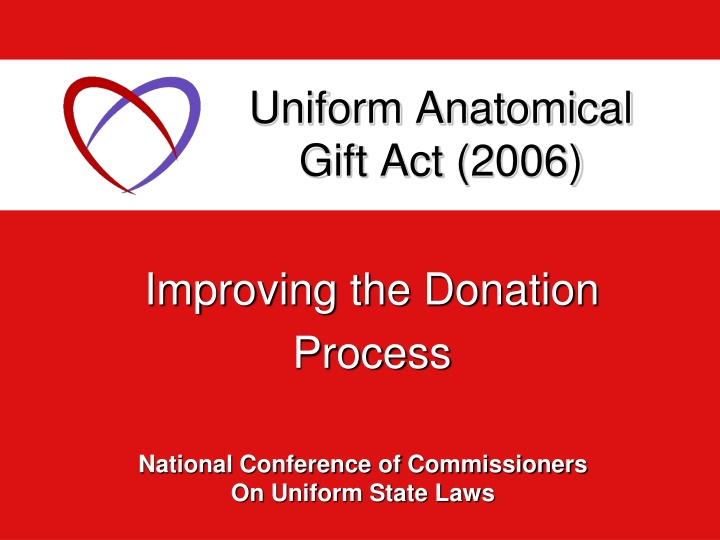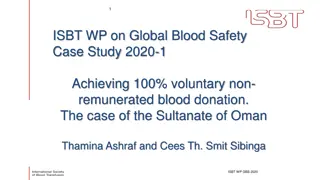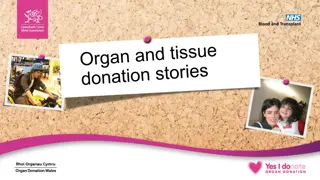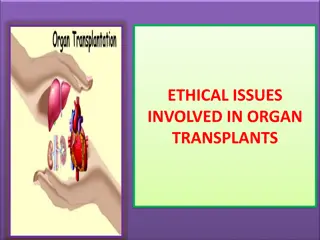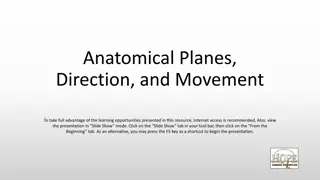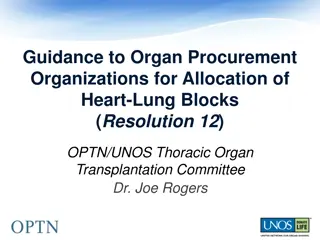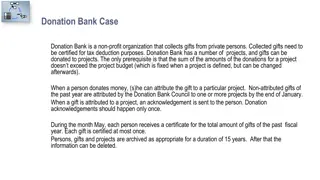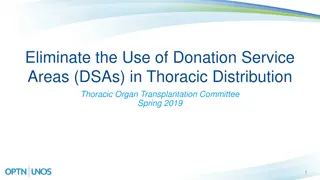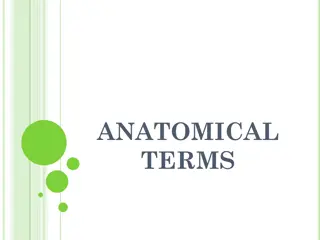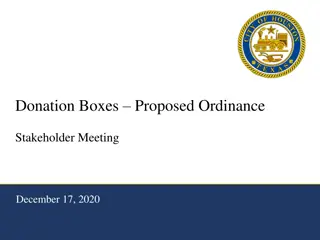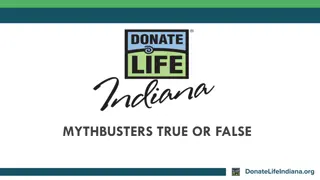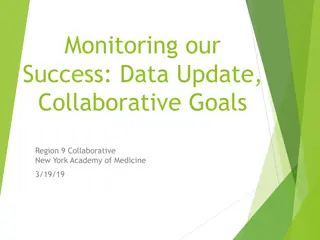Modernizing Organ Donation Laws: The Uniform Anatomical Gift Act of 2006
The Uniform Anatomical Gift Act (UAGA) of 2006 aims to enhance the donation process by introducing new definitions, emphasizing personal autonomy, and providing clearer rules. It addresses the need for uniformity, updates to reflect current practices, and modernizes the Act to ensure a smoother organ donation process. The Act simplifies the individual's right to donate, strengthens refusal options, and allows minors to make donations with limitations. Additionally, it expands the categories of individuals authorized to make donations, improving post-death decision-making procedures in organ donation.
Download Presentation

Please find below an Image/Link to download the presentation.
The content on the website is provided AS IS for your information and personal use only. It may not be sold, licensed, or shared on other websites without obtaining consent from the author.If you encounter any issues during the download, it is possible that the publisher has removed the file from their server.
You are allowed to download the files provided on this website for personal or commercial use, subject to the condition that they are used lawfully. All files are the property of their respective owners.
The content on the website is provided AS IS for your information and personal use only. It may not be sold, licensed, or shared on other websites without obtaining consent from the author.
E N D
Presentation Transcript
Uniform Anatomical Gift Act (2006) Improving the Donation Process National Conference of Commissioners On Uniform State Laws
History of the UAGA Original UAGA promulgated in 1968, created the power to donate organs, eyes and tissue. 1968 UAGA was uniformly adopted in all jurisdictions. First revision to UAGA promulgated in 1987, intended to update Act to reflect changes in circumstance and practice. 1987 UAGA adopted in only 26 states.
Why Revise the UAGA? Uneven adoption of 1987 UAGA and numerous amendments over the years in each state have eliminated uniformity. State and Federal law are no longer in sync. The practice of organ donation has changed significantly, including a rise in the importance of organ procurement organizations.
Whats New in 2006 Act? New and expanded definitions. Increased focus on personal autonomy in the donation process. Clearer rules on the role of family, friends, and caregivers. Tools to facilitate the work of organ procurement organizations. Various changes that modernize the Act.
New Definitions Adult Agent Disinterested Witness Donor Registry Driver s License Eye Bank Guardian Know Minor Organ Procurement Organization Parent Prospective Donor Reasonably Available Recipient Record Sign Tissue Bank Transplant Hospital
Individuals Right to Donate Simplifies the document of gift and recognizes driver s license donation forms. Strengthens individual s right not to donate by permitting signed refusals.
Individuals Right to Donate (cont.) Permits minors to make a gift, with some limitations. Better prevents others from overriding an individual s decision to make or refuse to make an anatomical gift.
Donations by Others Allows agents under a health-care power of attorney may make a gift during an incapacitated individual s lifetime. Widens the class of individuals authorized to make a gift after the donor s death. Provides clearer rules and procedures for the post-death donation decision making process.
Organ Procurement Organizations Authorizes and provides protocols for states to create donor registries. Allows OPOs to access donor registries, medical records, and motor vehicle records to locate documents of gift. Reduces the need for OPOs to seek consent from the family except when donor is a minor.
Other Additions As a default rule for use of a gift, transplantation and therapy are given priority over research or education. Intentional falsification of a document of gift or refusal is a felony. Individual s acting in good faith in accordance with the Act or the applicable laws of another state are not liable for their actions in civil, criminal, or administrative proceedings.
Other Additions If there are any refusals in a given class, the majority of that class determine whether a gift is made. Definition of reasonably available addresses the time-sensitive nature of the organ donation process. Health-care directives requesting withdrawal of life-support are no longer construed as a refusal to donate.
Legislative Note The UAGA legislative notes recommend states to keep existing donor registries, donor awareness programs and other licensing matters in statutes when enacting UAGA.
Why is Uniformity Important? Transplantation occurs across state boundaries and requires speed and efficiency if the organ is to be successfully transplanted into the recipient. There is simply no time for researching and conforming to variations of the laws among the states. Need to harmonize state and federal law and policy to fully respect autonomy interest of donors. Uniformity is highly desirable.
More Information www.anatomicalgiftact.org Nicole Julal nicole.julal@nccusl.org 111 N. Wabash Ave. Suite 1010 Chicago, IL 60602 Phone: (312) 450-6600 Fax: (312) 450-6601
